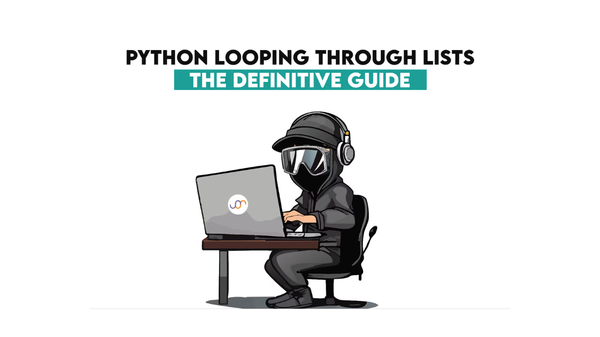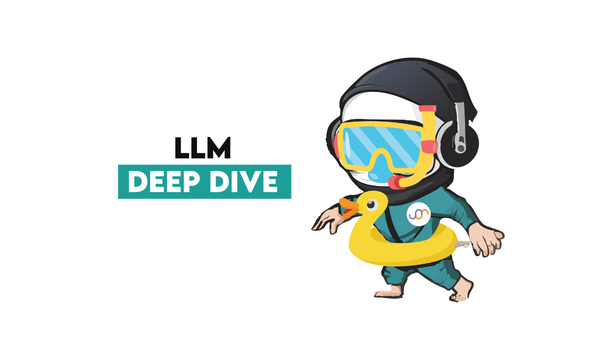What Does It Take to Be a Data Engineer at Google

 Written by:
Written by:Nathan Rosidi
Journeying through Skills, Perks, and Application Insights for Aspiring Google Data Engineers
"Data is a precious thing and will last longer than the systems themselves," Tim Berners-Lee once remarked.
To describe what a Google data engineer does, you must become aware of the skills and tools necessary to use such pervading data and the base of knowledge and edge-cutting tools on which these experts build the future of technology.
We’ll discuss all of these and more in this article. Let’s get started!
Who is a Data Engineer?
A Data Engineer is a specialist who builds, architects and manages data infrastructure. The primary responsibility of a Data Engineer is to ensure that data moves smoothly and safely from one location to another.
This role is closely related to large amounts of data, so a Data Engineer needs to be an expert in database management systems, data modeling, and data warehousing.
There are many technical and soft requirements that we’ll cover, but first, let’s answer this question.
Why is landing a job at Google so highly sought after?

Everyone knows that Google provides an excellent work environment that inspires and incentivizes creativity and collaboration.
People get access to cutting-edge technologies and the opportunity to work on projects that millions of users will use.
Finally, employment at Google is a dream for many, thanks to the high wages, excellent benefits, and low stress. Let’s explore them more!
Salary Benefits Of a Data Engineer at Google

Google provides a competitive salary package for Data Engineers. Salaries usually depend on level, years of experience, area, and other criteria. Data Engineer salaries typically range from $193K to $281K. Base pay, award, and profit sharing are included in “Earnings”.
On one end of the scale, entry-level opportunities could pay less. The other end includes executives and experienced employees who are highly compensated for their value as they contribute to the mix.

This wage design is crafted to attract and retain the best talent in the industry. Google offers top salaries and benefits to continue to be a world-competitive business. Google’s competitive compensation policy, reflects the organization’s innovative mindset and widespread recognition as a world-class employer.
Google’s Work Environment
Google’s culture facilitates individual and collaborative productivity among employees. This is engineered through comprehensive healthcare, mental health systems and programs, and wellness services.
Additionally, Google’s onsite services enable easy access to the facility even after a working period.
The hybrid model allows one to work from home, creating a work-life balance and joy. Google Space has cutting-edge technology that helps all kinds of people to work on their more significant ideas.
Low-stress
Image from Glassdoor - Google Workspace
Did you know that working long hours significantly increases mortality?
A comprehensive study analyzed the health impacts of working over 55 hours a week, finding a marked increase in the risk of early cardiovascular death.
Even if you have to work a lot at Google, 12% of Google employees reported that their jobs are not stressful, which is a really high percentage.
This contradiction may result from Google’s work environment and salary benefits, which can eventually relax Google employees and reduce stress.
Educational and Technical Requirements For a Data Engineer at Google

Of course, you may be interested in what you need to do to become a Data Engineer at Google.
After all, the benefits and the firm are motivating. In this part, let us expand the technical and educational skills necessary to become a data engineer.
Firstly, it is mathematical proficiency. Since data manipulation and algorithm development require grade-level math, you will only become a proficient data engineer if you are proficient in math.
Secondly, consider programming knowledge. You need to be a pro in programming languages like Python and Java. R and C++ can also be good ideas for building and optimizing data systems.
Thirdly, there is statistical knowledge, which is a core part of data analysis. Also, it should be known to learn machine learning.
Moreover, database management experience in cloud services, especially Google Cloud services, is necessary.
Understanding some machine learning and deep learning algorithms will also be beneficial, as this can increase data process automation.
Finally, knowledge of big data tools, which process vast amounts of data, is necessary.
In addition to the above requirements, you must comply with the companies soft skills and personal qualities; let us consider them together.
Soft Skills and Personal Qualities for a Data Engineer at Google

Here is a list of soft skills and personal qualities for a Data Engineer at Google.
- Communication Skills: Explaining complicated technical data to non-technical stakeholders helps ensure everyone can understand it, act on it, and achieve optimal results.
- Problem-Solving: Good problem-solving skills are needed to deal with any data management situation and develop suitable solutions.
- Analytical Thinking: This ability helps a Data Engineer analyze data to make informed decisions and solve problems.
- Creativity and Innovation: Creativity and innovation, on the other hand, help create and develop more efficient data systems and solutions than those currently available, and if you plan to work at Google, this is a must-have ability.
- Teamwork and Collaboration: Since data engineers typically work in diverse, interdisciplinary teams, a Data Engineer must collaborate effectively to ensure that data insights are effectively integrated and appropriated by various departments.
All of these contribute to a Data Engineer’s capacity to handle complicated data landscapes effectively, fostering a positive atmosphere that promotes continuous improvement and innovation.
Gaining Relevant Experience
Based on the information we have, here are some organized steps you can take to get experience that will help you get a job as a Data Engineer at Google.
- Education and Certification: Do you remember how you learned the occupation you are doing now? In data-related jobs, along with conventional methods, you can learn these jobs by collecting certifications such as the IBM Data Engineering Professional Certificate or the Cloud Data Engineer Professional Certificate.
- Practical Experience: After learning, you need to do practice projects, specifically data engineering, which offers real-world data projects used in hiring processes. For instance, you can work on the Data Transformation project. This project involves transforming JSON files into structured CSV formats using Python. Another valuable project is the Outliers Detection, where you'll develop algorithms to detect anomalies in financial data. You need to show your data analysis and machine learning skills in this one.
- Continuous Learning: In data-related jobs, you must learn continuously because tools are updated or changed regularly. To do that, you must follow platforms that aim to teach data. By doing so, you will keep up with industry trends and read blog posts like What Does a Data Engineer Do? and Data Engineer Interview Questions from StrataScratch.
- Preparing for the Interview: Prepare interviews with questions that Google asks. StrataScratch provides 87 interview questions from Google and solutions in 7 different coding languages that help you practice SQL and Python coding skills tailored explicitly to data engineering roles.
Platforms like Coursera and DataCamp offer more details about courses and certifications.
After learning these concepts, you must do data projects and follow the blog posts constantly to keep updated and prepare for the interviews.
The Application Process at Google
Now, it is time to apply for a job at Google. But how will this process go? Knowledge is power; knowing the entire process will make you feel more confident during this period. Let’s see.
- Submitting Your Resume: Now, first you need to submit your resume and cover letter. Here is the Google’s careers portal. After you uploaded the files, the evaluation process began.
- Online Assessments: If your initial application catches their interest, the next step involves online assessments. This typically includes coding challenges and technical tests to gauge your proficiency in critical areas relevant to the role you've applied for.
- Phone or Video Interviews: After you pass the assessments, you'll move on to the interview phase, which usually starts with phone or video interviews. During these interviews, you'll face questions that test your technical skills and problem-solving abilities.
- Onsite Interviews: If the phone or video interviews go well, you'll be invited to participate in onsite interviews, which might still be virtual, depending on the circumstances. These in-depth interviews involve multiple rounds with different team members, focusing on technical questions and behavioral assessments to see how well you handle various scenarios.
- Review Process: After the interviews, all your performance feedback is reviewed by a hiring committee. They carefully assess how well you did across all stages of the interview process.
- Receiving an Offer: If the committee's review is favorable, you'll receive a job offer. At this stage, for more senior roles, a senior Google executive might review and approve your offer before it's finalized.
Each step of this process ensures that candidates are skilled in technology and a good fit for Google's work and goals. It's strict, but it ensures that everyone who applies can help Google finish its projects and meet its objectives.
Final Thoughts
Being a data engineer might require time to learn and practice what you know, but being a data engineer at Google might take a bit more, as we discussed. In this article, we’ve reviewed the skills, application process, and more!
Here, you are already informed about where to learn and practice. For example, our platform has many practice problems, including ones from Google, that can assist you in preparing for technical interviews.
By constantly learning and practicing about it, you can be a part of Google, and I hope you’ll be if you want it.
Share


